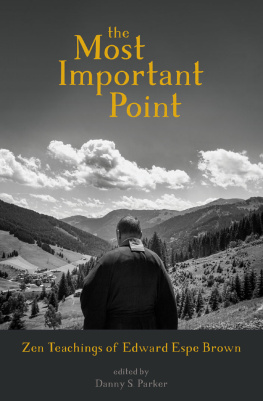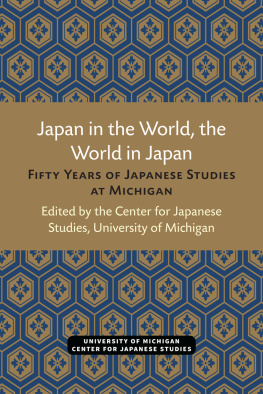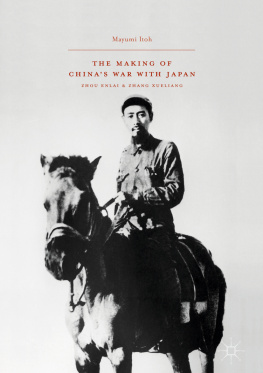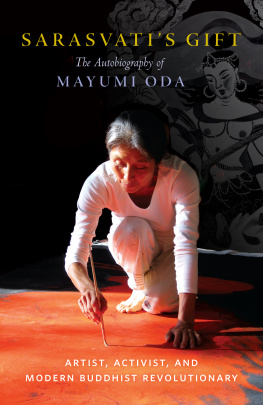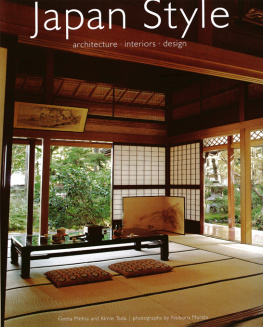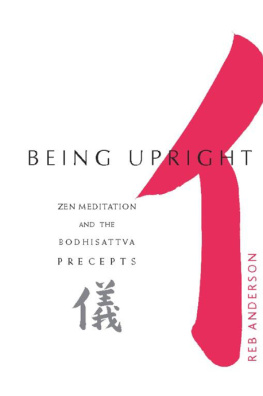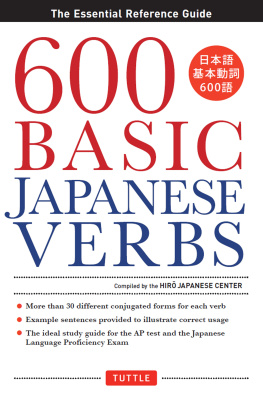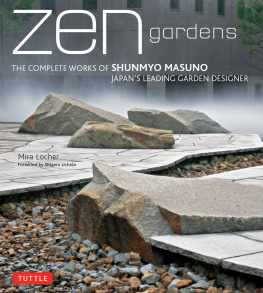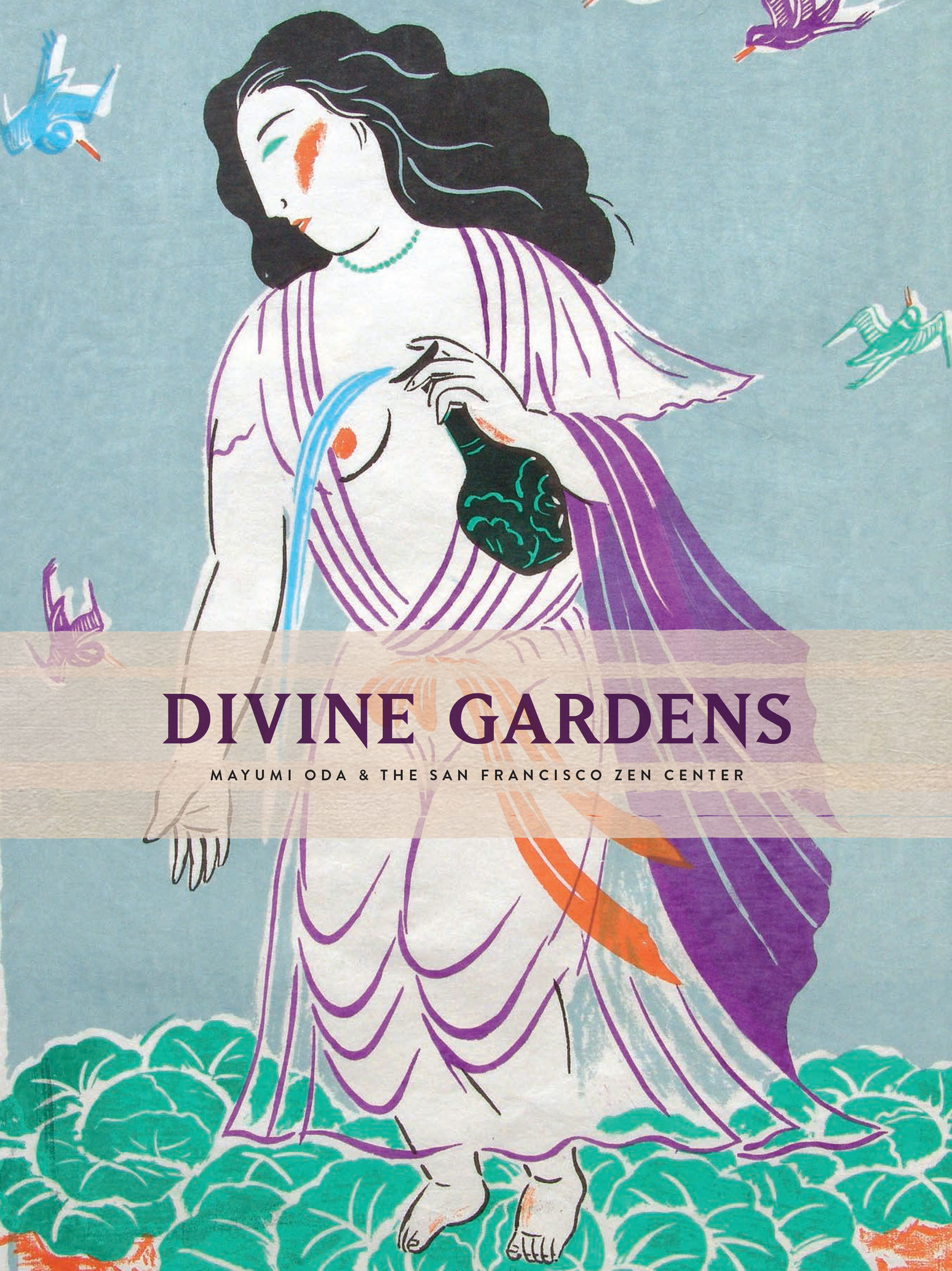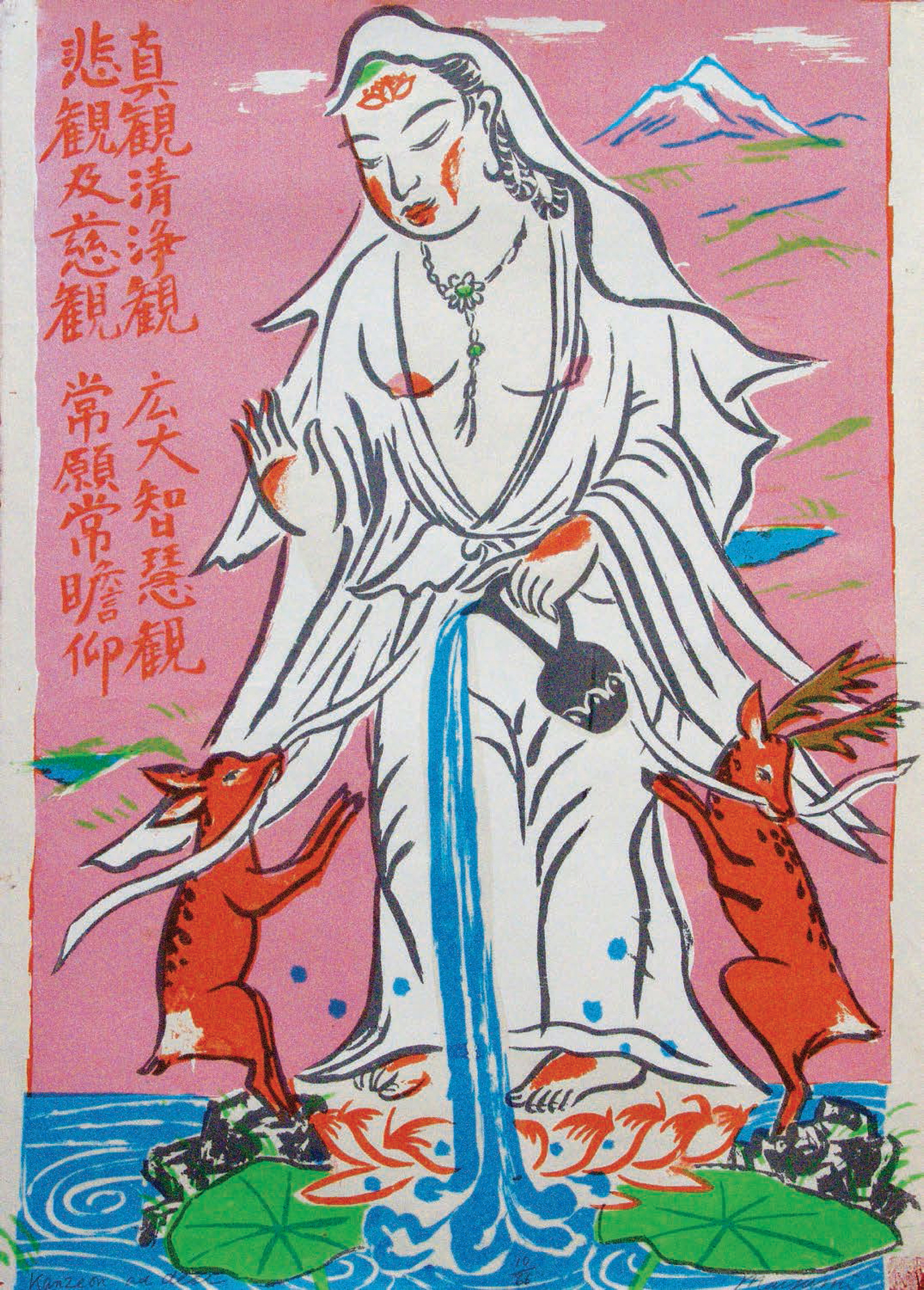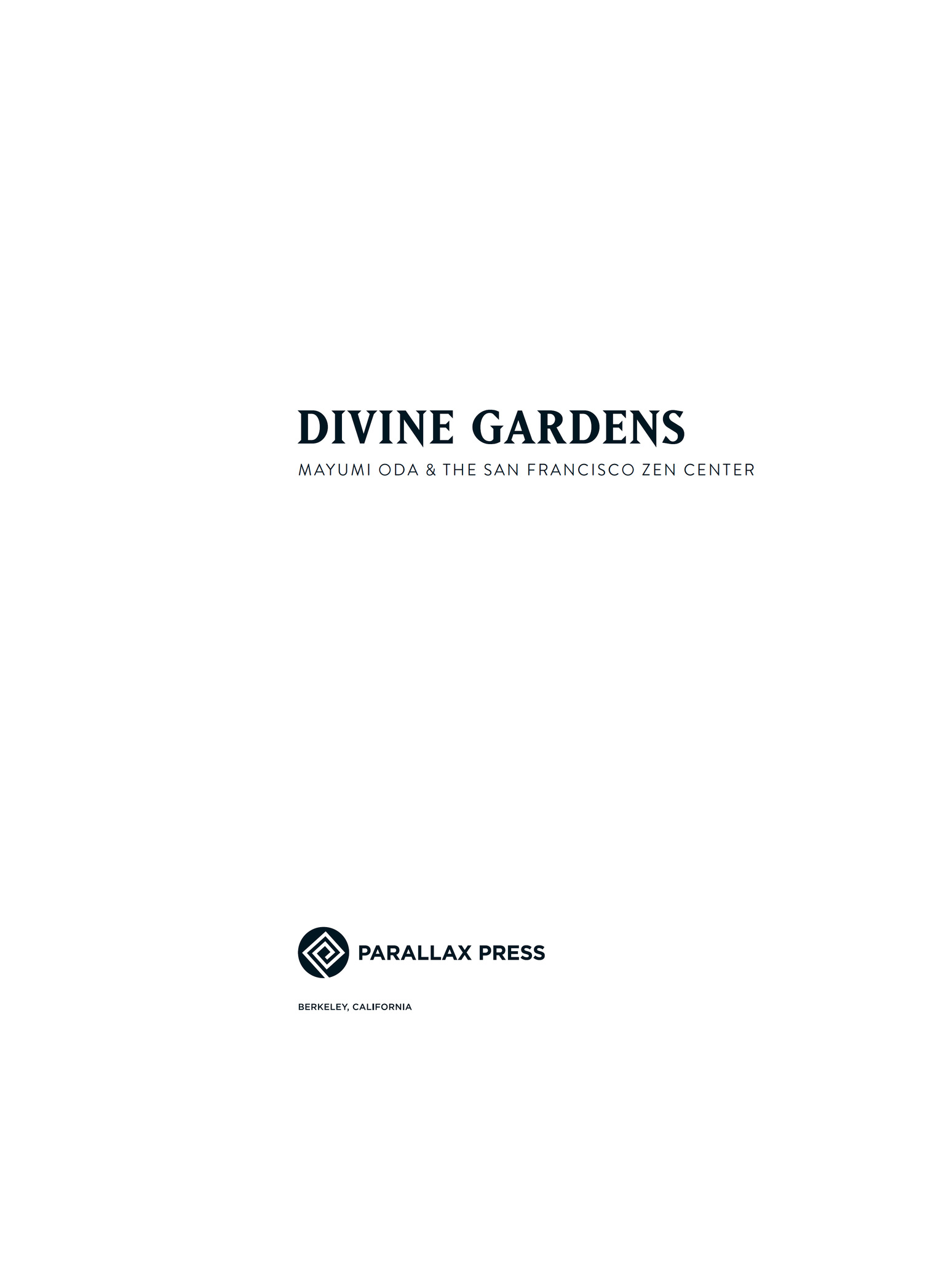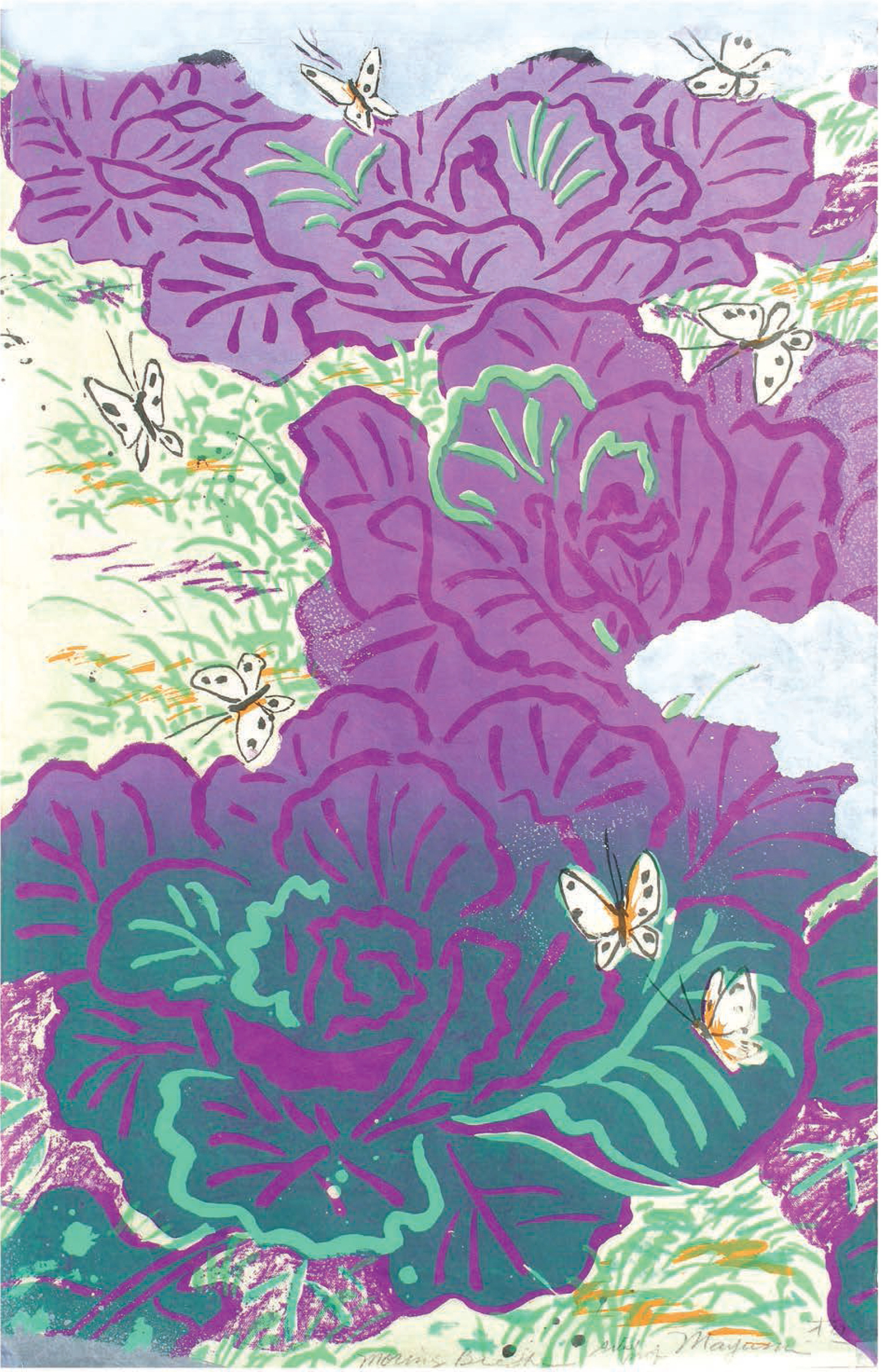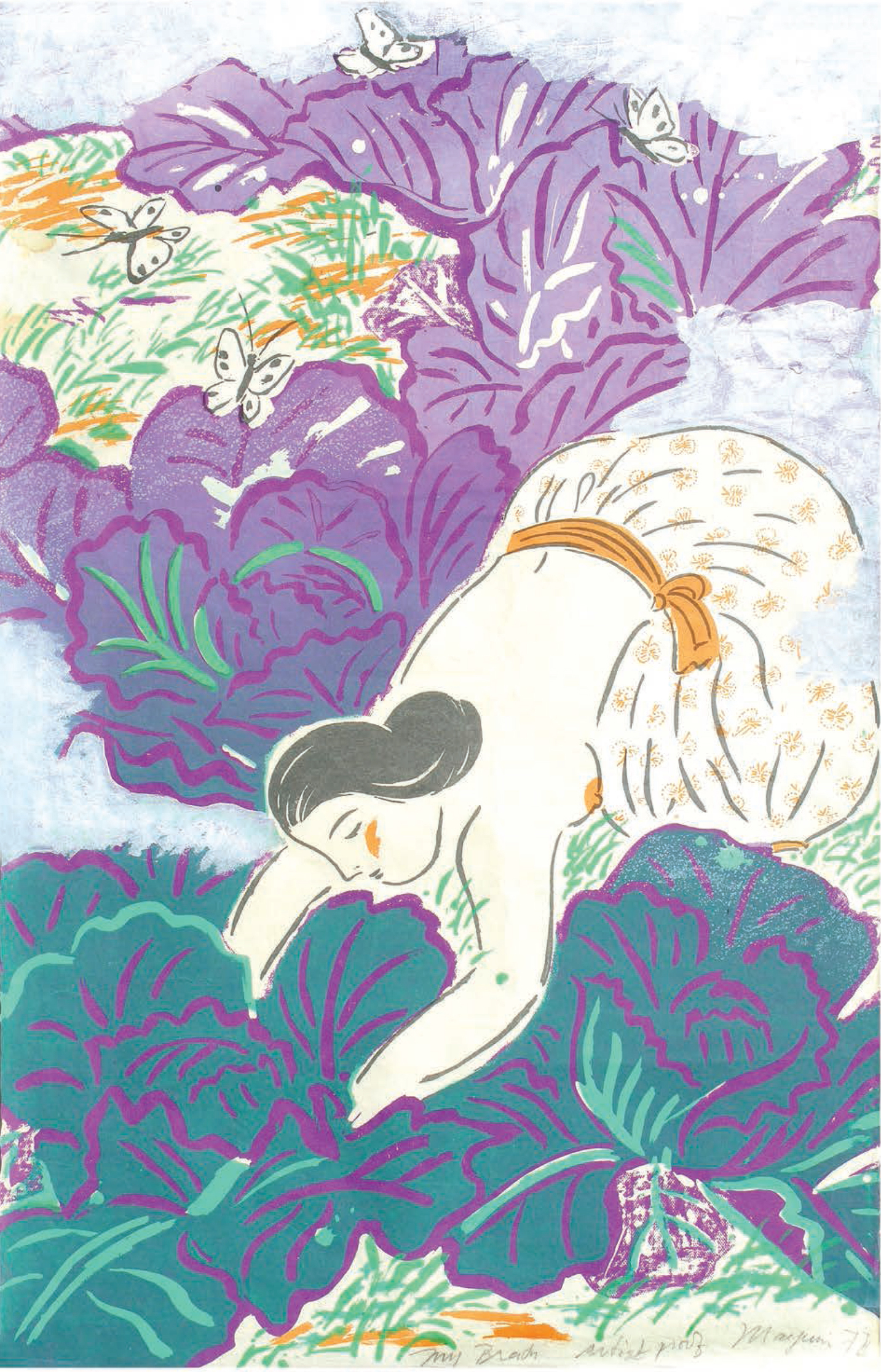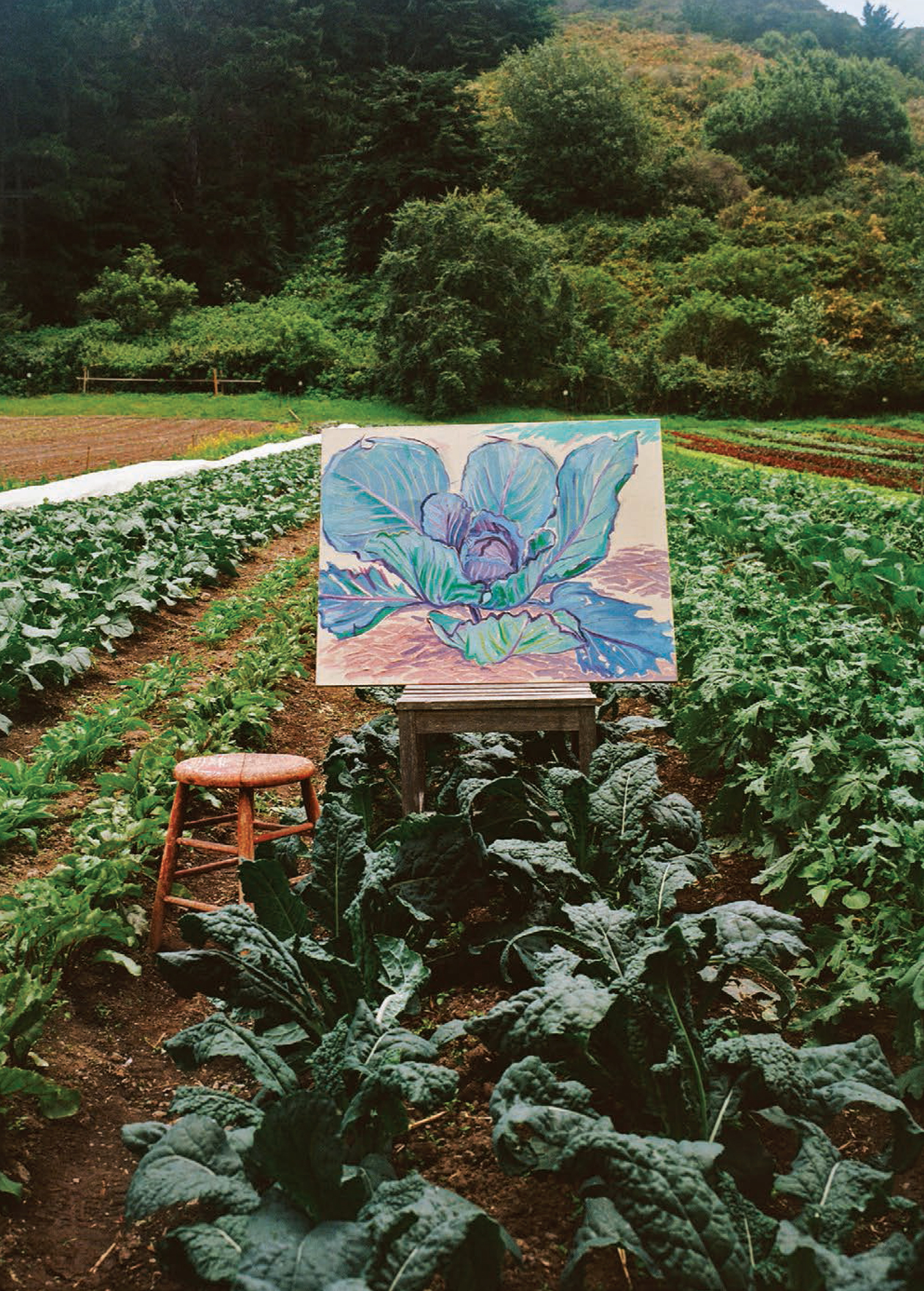Contents
KANZEON AND DEER , 1988, Serigraph, 35 x 24
Parallax Press
P.O. Box 7355
Berkeley, California 94707
Parallax.org
Parallax Press is the publishing division of Unified Buddhist Church, Inc.
Copyright Mayumi Oda
All rights reserved
No part of this book may be reproduced in any form or by any means, electronic or mechanical, without permission in writing from the publisher.
Interviews and essays compiled by Rachel Walther
eBook design adapted from printed book design by Ingalls Design, Thomas Ingalls and Christopher Jordan
Ebook ISBN9781941529812
Library of Congress Cataloging-in-Publication Data
Names: Oda, Mayumi, 1941Works. Selections. | San Francisco Zen Center.
Title: Divine gardens : Mayumi Oda and the San Francisco Zen Center / Mayumi Oda.
Description: Berkeley, California : Parallax Press, 2017.
Identifiers: LCCN 2017024585 (print) | LCCN 2017025429 (ebook) |
ISBN 9781941529812 | ISBN 9781941529805 (hardback)
Subjects: LCSH: Oda, Mayumi, 1941Themes, motives. |
Oda, Mayumi, 1941Anecdotes. | BISAC: ART / Individual Artists / Essays. | PHILOSOPHY / Buddhist.
Classification: LCC NE2238.5.O26 (ebook) |
LCC NE2238.5.O26 A4 2017 (print) | DDC 769.92dc23
LC record available at https://lccn.loc.gov/2017024585
v4.1
a
Dedicated to the Buddha,
Dharma, and Sangha.
MORNING BREATH, MY BREATH , 1983, Serigraph, 50 x 38.5
CONTENTS
CONTRIBUTORS
FOREWORD
WENDY JOHNSON
Author, Lay Dharma Teacher,
Founding Member Green Gulch Farm
I have known and practiced with Mayumi Oda for almost forty years. We met at Green Gulch Farm Zen Center during the pioneer season of Zen practice in America. It was the mid-1970s, a few years after the death of sixty-seven-year-old founding Zen master Shunryu Suzuki Roshi. In those vivid and unrefined times, Green Gulch Farm was still a frontier country.
As Suzuki Roshis first American Dharma heir, Zentatsu Richard Baker Roshi was thirty-five years old when he became Abbot of San Francisco Zen Center. Suzuki Roshi and his original Western Dharma students had incorporated the Zen Center in 1962. Tassajara Zen Mountain Center, the first Zen Buddhist training monastery in the United States, was established in 1967, followed by the founding of Beginners Mind Templeor the City Centerin San Francisco in 1969. In 1972, around the time of Baker Roshis installation as Abbot, the Zen Center purchased 115 acres of coastal land to create Green Gulch Farm Zen Center.
The 1970s were dynamic years in the environmental, political, and spiritual life of the San Francisco Bay Area. Under the bold leadership of Abbot Richard Baker, and with the support of hundreds of dedicated sangha members, the Zen Center initiated a trifold treasure of practice-based businesses, community service and outreach programs, and multiple projects that joined applied Zen practice to strong artistic expression. During these formative years the Tassajara Bread Bakery, Greens Restaurant, and the Green Gulch Greengrocer were all created. The Zen Center traveling carpentry crew helped to establish these businesses while also building the Wheelwright Center and Lindesfarne Hall at Green Gulch Farm.
Community service and outreach in the early years of the Zen Center was often linked to food and farming and to sharing the abundant harvest with the wider community. One of the original farm-to-table partnerships in the United States evolved between Green Gulch Farm and Greens Restaurant, inspiring many other such fledgling projects across the organic farming movement. During these years, a vigorous family meditation program was also set up at City Center and Green Gulch, outreach that continues to this day to offer lively access to Zen practice for Bay Area families.
During the 1970s, poets, writers, activists, peacemakers, and intellectuals gathered at the Zen Center to create new culture together. Beat poets Gary Snyder, Philip Whalen, and Allen Ginsberg initiated a Buddhist-inspired all-day circumambulation of Mt. Tamalpais, the guardian peak overlooking Green Gulch Farm and the Pacific Ocean. Scholar practitioners Kaz Tanahashi and Thomas Cleary worked closely with the Zen Center to offer fresh translations of Dogens teaching and the Blue Cliff Record Hekigan Roku koans. Zen Center teachers were also publishing savory texts focusing on Zen practice and everyday life. The Tassajara Bread Book, the Greens Cookbook, and Fields of Greens remain Zen classics to this day.
It was during these years that artist and activist Mayumi Oda moved to Muir Beach with her two young sons Zachary and Jeremiah and began practicing with us at Green Gulch. Despite the rapid development of the Zen Center, at Green Gulch Farm we remained a ragtag band of vagabond pilgrims traversing the young landscape of meditation practice. Cloud and water wanderers without a fixed identity and with no apparent means of support, we entered unmarked terrain. The original ground of our practice was raw grit. We went down into that field and got to work.
Richard Baker Roshi was an intrepid guide. He entrusted Steve Stucky to lead and develop the original organic farming program at Green Gulch. Stucky, a young practitioner from Kansas who came to Zen from the deep farming roots of his Anabaptist Mennonite ancestors, worked alongside a dedicated crew of sangha farmers. In these formative years, we trained with agricultural masters: British horticultural patriarch Alan Chadwick and California native plant agronomist Harry Roberts, schooled in the indigenous medicine tradition of the Yurok people of Northern California.
Photos by Rachel Walther at GREEN GULCH FARM


